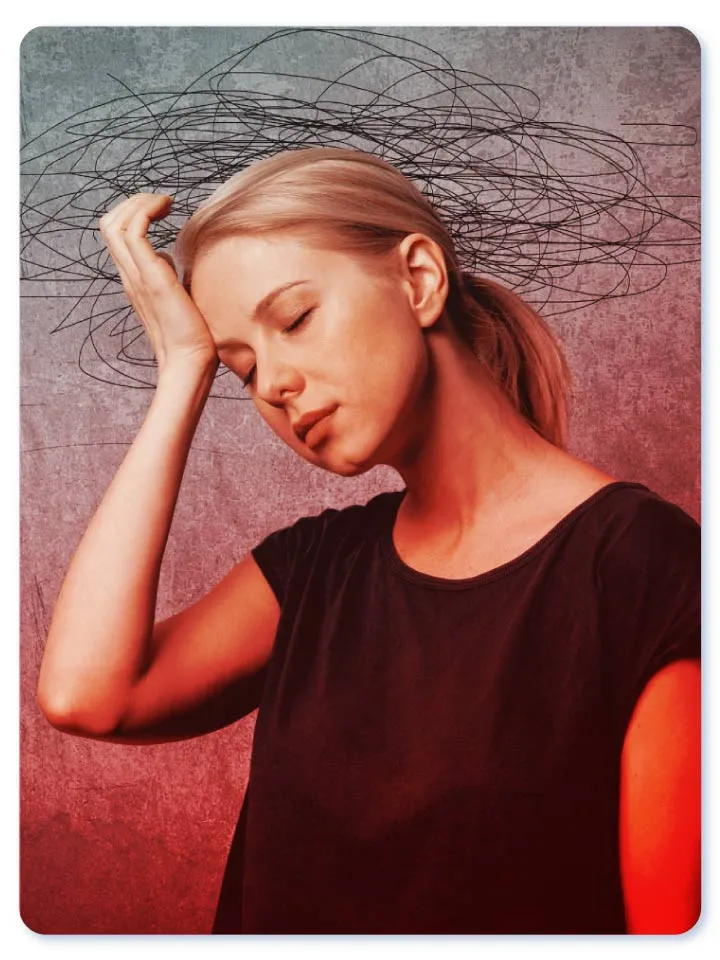Panic Disorder
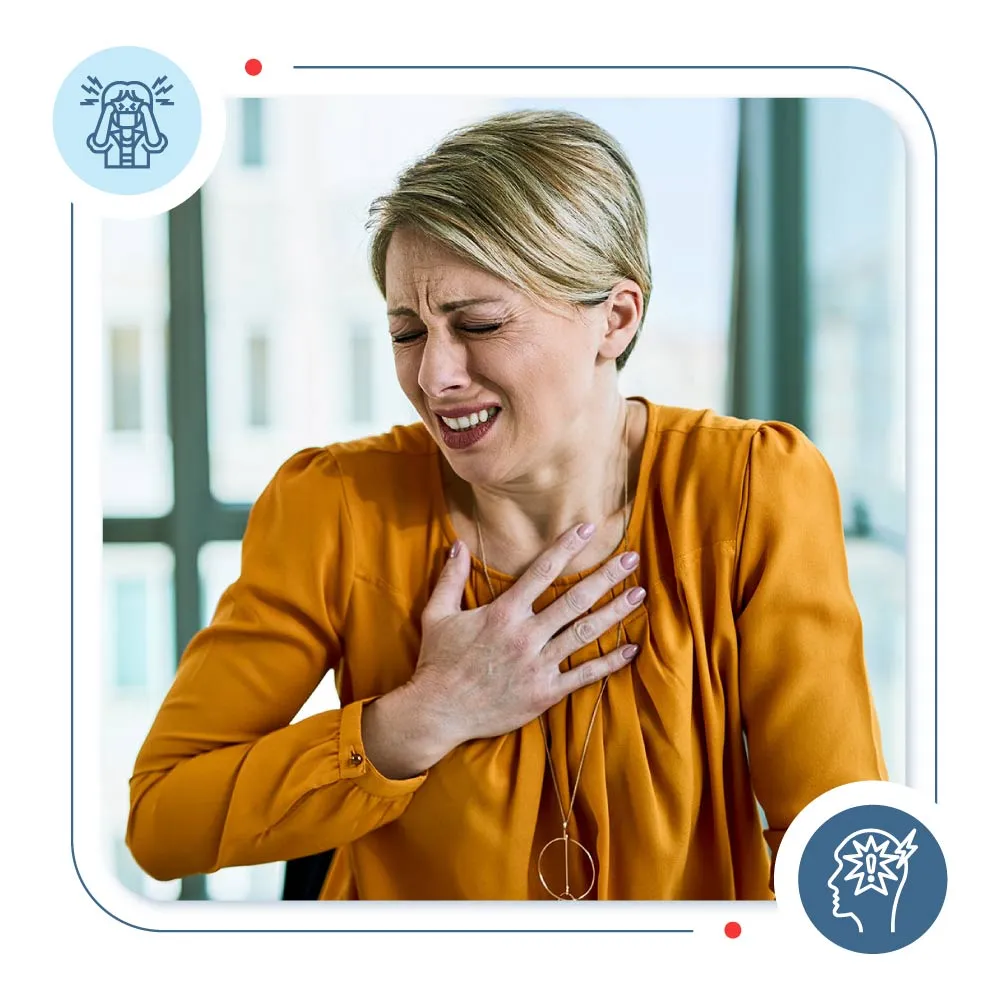
What is Panic Disorder?
Panic disorder is a mental health condition and is a type of anxiety disorder. The National Institute of Mental Health (NIMH) provides a panic disorder definition. Panic disorder (PD) is defined as having abrupt, frequent and repeated episodes of panic attacks (PA). A panic attack is a situation where you sense a sudden bursting of extreme fear or impending doom, which gets stronger in minutes. This happens without any real danger and is accompanied by 4 or more physical symptoms as well. You might not get any warning signs or triggers before experiencing it. Panic attacks vary in their frequency. You can have so many episodes of PA in one day to only a few episodes per year. You may also find panic attacks as part of other mental health conditions like mood or behavioral issues, substance abuse or even in certain medical conditions (heart disease, thyroid disease, respiratory problem).
Panic disorder is a fairly prevalent mental health issue around the world. Also, if you are a woman, your risk of having this mental health issue gets doubled as compared to men.
Many of us get such attacks once or more in our lives. But, if you are having regular and repeated episodes, that are interfering with your daily life, you should reach out for support. Mid Cities Psychiatry is the best panic disorder treatment center in Euless. Our expert team is constantly supporting those with mental health issues.

Panic Disorder Symptoms
Suffering from panic disorder means you are having frequent panic attacks. Panic attack occurs abruptly and you don’t actually get any warning or trigger for that. You can get this anytime or anywhere whether you are sleeping calmly or doing grocery at the mall. Each PA has different timings ranging between 5 to 20 minutes. Your body reacts as if you are in some life-threatening situation and prepares you to either fight or flight. Typically, you may:
- Have a racing heart, also known as palpitations.
- Encounter sharp chest pain
- Find yourself choking or dying of shortness of breath
- Be shaking heavily or trembling with fear
- Become extremely hot, drenching in sweats or chilled with cold, clammy skin
- Experience tingling or numbing sensation in hands and feet
- Be nauseating or feeling severe abdominal pain
- Get dizzy or completely unconscious over time
Panic attack really takes a toll on your emotions and thoughts. It leaves you feeling stuck somewhere. You find yourself extremely hopeless during an attack. You can have:
- A sense of losing hold of everything around you
- A brief period of detachment from reality or detaching from your personality
- Perception of not being connected with your body
- A strong, unimaginable fear of death
One of the hallmark features is the fierce, lingering anxiety that panic disorder brings. Actually, severe panic disorder is an extreme form of anxiety. You keep worrying about when and where you might get the next attack.
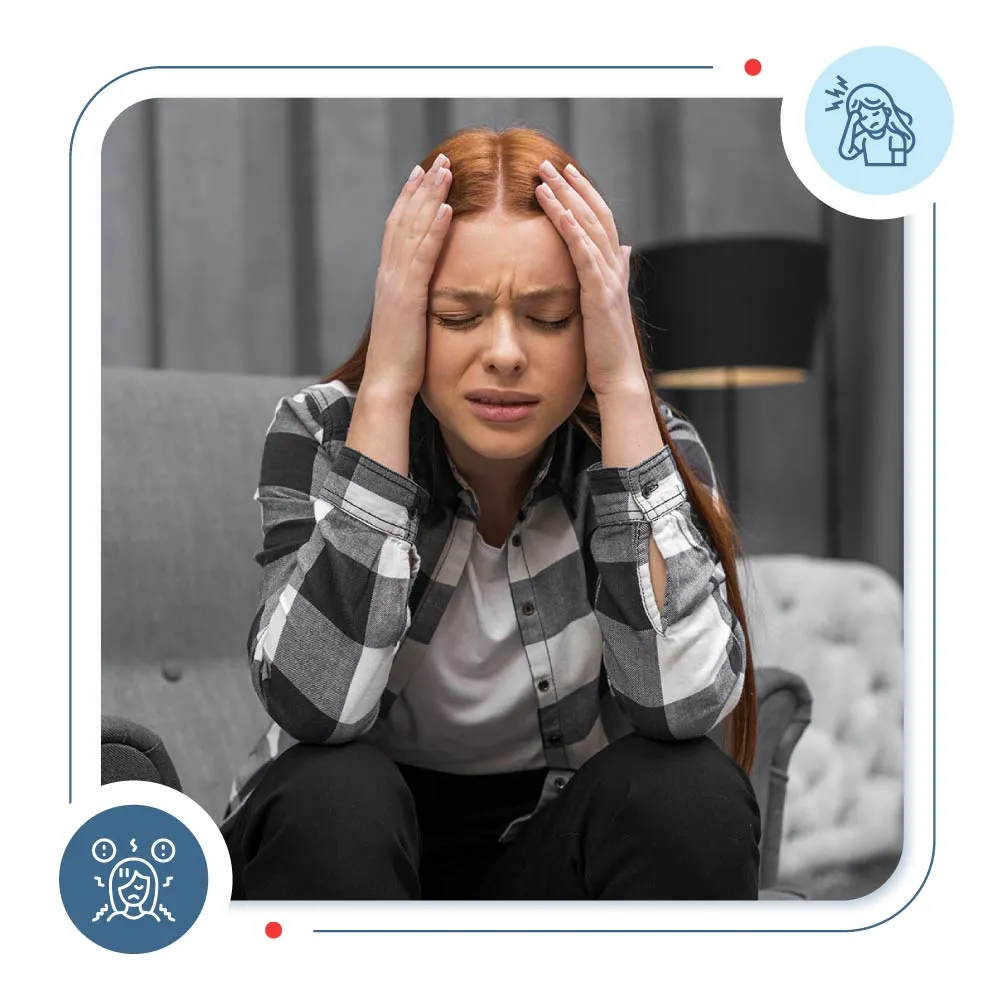

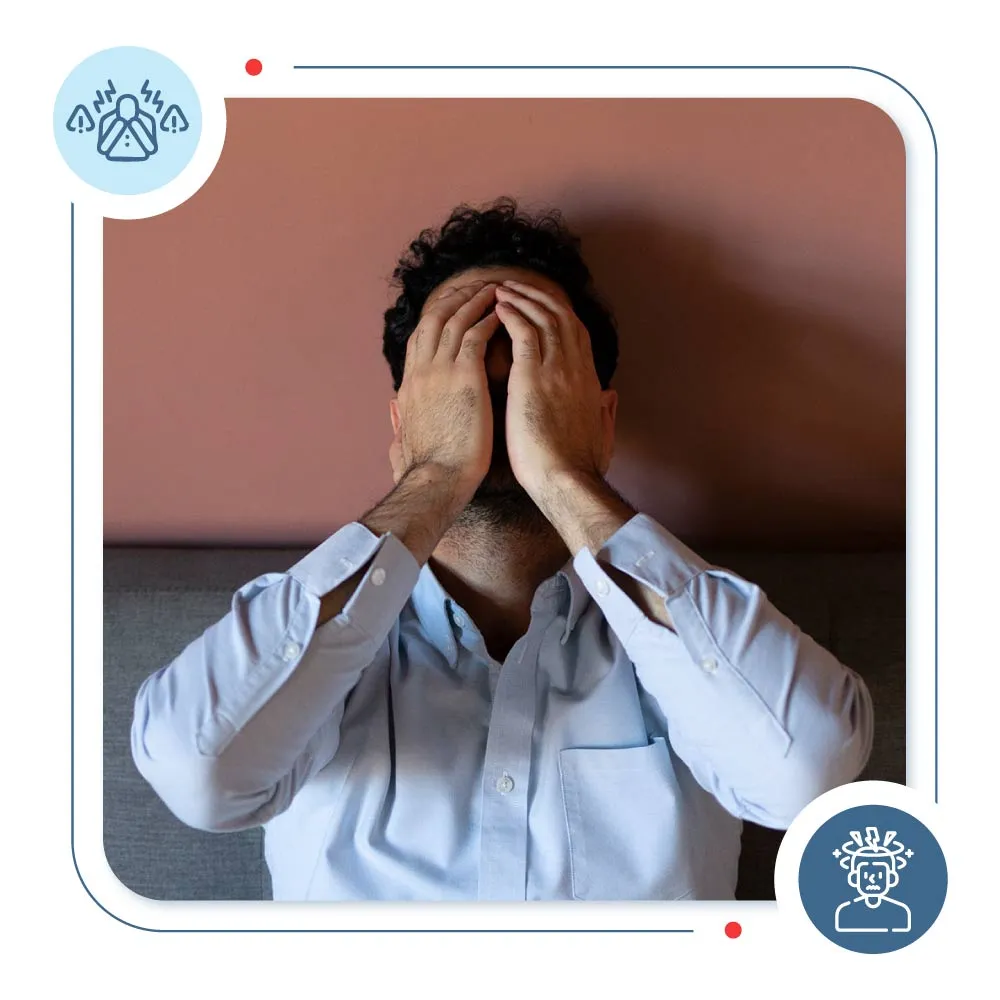
Causes of Panic Disorder
Experts are still trying to solve this mystery of why people go through panic attacks or get panic disorder. Most of the research data propose that it’s your brain that processes and handles fear and anxiety differently. Amygdala is the part of your brain that manages all the algorithms related to these emotions and its dysfunction can root for PD. Some researchers also believe in chemical imbalances as the cause of panic disorder, such as gamma-aminobutyric acid (GABA) or serotonin. Even without any known exact cause, risk factors can always be there to precipitate PD.
- A family member suffering from panic disorder, as it passes in family
- Having some other mental health conditions e.g., anxiety disorder or depression.
- Bad or traumatic childhood experiences such as neglect, physical trauma, violence
- Environment also affects you negatively e.g., unfavorable temperature shifts, changes in job or workplace

Panic Disorder Treatment
If you are experiencing all these symptoms and are not sure what to do, it’s time to reach out to us. You are not alone. Mid Cities Psychiatry provides you with the compassion and care you need to fight this challenge. Let our expert therapists heal you and take control of your mental health. We offer you 2 main options for panic disorder treatment:
- Psychotherapy
- Panic Disorder Medications
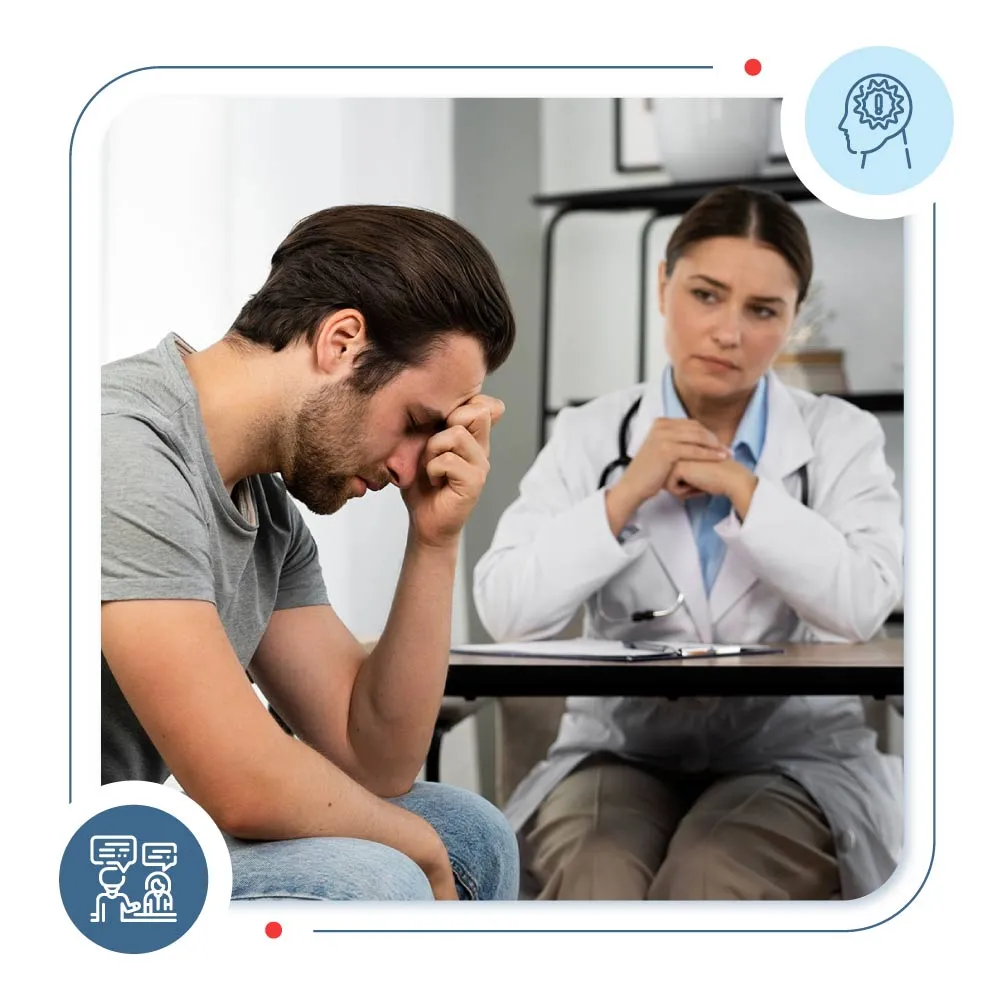

FAQs
01
How is a panic disorder diagnosis made?
We make your panic disorder diagnosis with the help of updated Diagnostic and Statistical Manual of Mental Disorders (DSM-5) criteria. American Psychiatric Association (APA) proposed and formed this panic disorder criteria in 2013 and updated it in 2022.
02
Can I avoid my panic attack?
Not actually, because there are no known triggers for panic attacks. But if you have any known phobias, you may get phobia-related PA. So, you might be somewhat able to control them by avoiding phobic situations.
03
How can I tell if I am just anxious or getting a panic attack?
04
How can I calm myself during a panic attack?
Move yourself somewhere comfortable and safe if possible. Start taking deep breaths with your mouth wide open. Reassure yourself that it’s temporary by saying ‘This shall pass too’. Try counting in reverse order from 20-1 to focus on what’s around you. Do some grounding technique e.g., 3-2-1 activity (name 3 yellow objects you see, touch 2 rough things around you, take a long breath. Repeat). Let your family member or friend know that you’re having a panic attack.
05
Can I outgrow panic disorder?
Not always. Panic disorder recovery depends on how effectively you are being managed. If you efficiently take panic disorder treatment, it’s highly likely to have reduced panic disorder symptoms over time. You may eventually become able to overcome this condition.
06
What is my panic disorder prognosis or outlook?
If you are efficiently taking treatment for your panic disorder, your odds of getting better are higher. If you do not take any panic disorder treatment, you’re more prone to suicidal ideations. This also lowers your quality of life.
Real Stories, Real Recovery





We provide a comprehensive care provision for the most common mental issues people struggle with, such as PTSD, ADHD, OCD, anxiety, depression, sleep disorder, schizophrenia, and numerous other mental health conditions.



